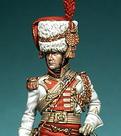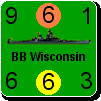warspite1
Posts: 41353
Joined: 2/2/2008
From: England
Status: offline

|
Jutland: The Unfinished Battle (Nicholas Jellicoe) Seaforth Publishing
With the 100th anniversary of the Battle of Jutland approaching I was keen to read another account of the battle. I was drawn to this book as it was written by Nicholas Jellicoe, the grandson of the British Commander in Chief of The Grand Fleet at the time of the battle, and had a good review from Robert Massie (of Castles of Steel fame).
The story of the battle and how it panned out is frustrating and sad in equal measure, but I have to say this was an enjoyable read and the positives far outweigh the negatives. So what were these?
The negatives
The main complaint I have with this book is the lack of diagrams and drawings that allow the reader to properly understand what was happening at various times. To many (most?) of us I would imagine that being able to understand what is happening through the use of nautical terms is not a gift we possess. Note: this book is far from being an outlier in this regard. Indeed it is rare that a book on any military campaign provides the reader with sufficient information. Particularly annoying when a passage makes mention of somewhere that was not even identified on the all too few maps and diagrams in the first place! But I digress.
The second issue is that I bought the book as I wanted to see Jutland from another perspective – but the book started with mini biographies of Fisher and Tirpitz in a kind of Bullock’s Hitler and Stalin Parallel Lives type fashion. Do not get me wrong, the information was interesting to someone who knows relatively little about these key characters, and I would have expected something on these individuals given their contribution to the fleets that fought the battle, but I felt that there was too much that was irrelevant to the story of Jutland. There was also a large section on the subsequent submarine campaign – and Jellicoe’s role, as First Sea Lord, in trying to defeat it. Again very interesting in its own right, but not what I bought the book for.
The final complaint is that there was some repetition, as well as some grammatical and the odd factual mistake and also, in a few places, some points/sentences that seemed out of place in terms of what was being described/discussed. Thankfully these were rare.
The positives
All that said, I have to say that the above did not spoil the book for me and the book was written in an easy-to-read style that made the book a pleasure and not a chore (a lack of maps and diagrams notwithstanding!).
I suspect the title refers to the battle that is still raging over who was to blame for Jutland not being another Trafalgar and which side actually won the battle? It is clear that the author is trying to set the record straight with regard to the poor press that Jellicoe has received, both at the time and in the years subsequently, but I have to say he does this in a measured, even-handed way and is not slow to criticise his grandfather where he thinks it necessary and appropriate. The German performance is also put into perspective and both failings and successes, good decisions and bad, are acknowledged.
The book contains brief but interesting bios of the four leading Admirals during the battle: Jellicoe, Scheer, Beatty and Hipper, allowing the reader access to the background of each and the route they took to be where they were on 31st May 1916.
I do not want to put in any spoilers for those who do not know much about the battle, what took place and how it ends, but the book brings out the many, many failings of the British – from the Admiralty, through all levels down – that contributed to the failure of The Grand Fleet, with such a material advantage, to annihilate their German contemporaries. Of course every story has two sides and there is more than one way of looking at most things in life. What is interesting is that despite these many failings, it is clear that Admiral Scheer was, even then, incredibly lucky to get his fleet home – and Hipper even luckier.
Conclusion
I have my own views on the extent to which Admiral Jellicoe was at fault for what happened on 31st May-1st June 1916. What is clear is that he was incredibly let down by certain subordinates and others. One intriguing question though is, to what extent he, as Commander in Chief, was responsible for, or at least contributed to, his subordinates failings? There is much here to ponder over.
Was this book worth the cost? Absolutely.
< Message edited by warspite1 -- 4/13/2016 8:32:35 PM >
_____________________________
England expects that every man will do his duty. Horatio Nelson October 1805  |
 Printable Version
Printable Version
















 .
. 

 New Messages
New Messages No New Messages
No New Messages Hot Topic w/ New Messages
Hot Topic w/ New Messages Hot Topic w/o New Messages
Hot Topic w/o New Messages Locked w/ New Messages
Locked w/ New Messages Locked w/o New Messages
Locked w/o New Messages Post New Thread
Post New Thread